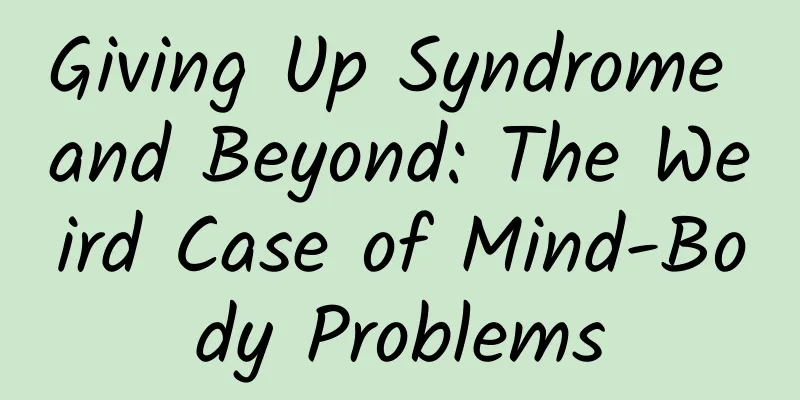What foods should I avoid when suffering from sciatica? How can I relieve sciatica?

|
Sciatica is a type of pain that affects normal sitting posture. For example, lumbar disc herniation can cause sciatica. Medication alone is not enough to treat sciatica. It can only relieve pain, and you should also pay attention to some physical therapy methods. So what should you avoid eating for sciatica? What foods should I avoid for sciatica?Patients with sciatica should avoid coffee, chili peppers, alcohol, pepper, ice cream, cold drinks, chocolate, etc. There are also some foods that can prevent or relieve pain symptoms, such as vegetables and mushrooms such as broccoli, sweet potatoes, cabbage, potatoes, tomatoes, onions, garlic, celery, and shiitake mushrooms, fruits such as lychees and kiwis, lean meat, animal liver, fish and other meats, cereals such as brown rice, oats, wheat bran, rye, buckwheat, and wheat germ, nuts such as melon seeds, cashews, walnuts, almonds, pistachios, chestnuts, pine nuts, and peanuts, soybeans, red beans, mung beans, as well as eggs and dairy products. Based on the above ingredients, we recommend a way to eat them together, that is, red bean and brown rice, which can relieve inflammation and calm nerves. Red beans are rich in B vitamins, which can regulate the function of the nervous system and calm nerves. They can relieve the pain of nerve inflammation and relieve the discomfort caused by sciatica. Brown rice contains nutrients such as vitamins B1, B2, B3, B5, B6, etc., which work synergistically with the nutrients rich in red beans to effectively fight sciatica. How to relieve sciatica1. StretchingThere are many treatment options for sciatica. For patients with sciatica, the best treatment plan can be selected according to the specific condition. For patients with sciatica, stretching treatment can be used to relieve physical pain. Stretching treatment can play a role in assisting the treatment of sciatica. Patients can perform stretching treatments several times to effectively relieve physical pain. 2. Proper sleeping postureLumbar patients usually choose to sleep on their backs. When sleeping on their backs, they can put a pillow under their waist. The height of the pillow should be as high as their fist. This will relieve pain. Lying prone is equivalent to exercising the abdominal and back muscles. The patient raises his upper chest and keeps it for 10 to 30 minutes. This can strengthen the waist muscles and relieve pain. 3. Choose the right pillowLumbar patients should choose a low pillow for sleeping. The width of the pillow should be wider than the width of your shoulders and the height should be as high as your fist. This is beneficial to blood circulation and helps blood supply to the brain. 4. Punch the Huantiao acupoint with your bare fistHuantiao acupoint has the effect of benefiting the waist and legs and unblocking the meridians. Pressing this acupoint has a unique therapeutic effect on this disease. Stretching the lower limbs during pressing is conducive to the unblocking of meridian Qi, so as to achieve the purpose of pain relief. The Huantiao point is close to the hip joint, approximately two-thirds of the way up one side of the buttocks. 5. Proper waist massageWhen the patient wakes up in the morning, he should rub his hands together to warm them up, and then massage the lumbar spine. The massage time varies from person to person, and should be continued until the waist becomes warm. This can relieve pain in the painful area. 6. Sleeping in alternating positionsPeople with sciatica should choose to sleep on their backs. If it feels uncomfortable after a long time, they can change their posture and lie on their side. When lying on your side, the pillow should be raised to shoulder height, at a level where you don't feel pain in your shoulders. Lie on your side with your legs stretched behind your waist. 7. Sleeping on a hard bedDo not sleep on a mattress that is too soft, as it will aggravate waist pain. A hard bed can relax waist muscles and relieve pain. Note that the quilt should be 5 to 7 cm thick, not too thick. 8. Increase hip and hip training appropriatelySciatica puts the hips in a tense state, which can also affect blood circulation and metabolism. Increasing training can improve the meridian circulation in your legs. What to do if lumbar disc herniation causes sciatica1. Outer side of legPalpate the pain point in the lower back and penetrate deeply to see if there is sciatica on the outside of the leg. If so, it can be basically confirmed that it is caused by L4-5 lumbar disc herniation. If not, palpate the gluteus medius to see if there is nerve compression, causing pain on the outside of the leg. This is gluteus medius syndrome. 2. Back of the legsAt the pain point in the lower back, penetrate downward diagonally to see if sciatica occurs in the back of the leg. If so, consider L5-S1 disc herniation. If not, palpate the piriformis muscle. If there is radiating pain in the back of the leg, it is sciatica caused by piriformis syndrome. |
Recommend
Can I eat Fuguizi when I am pregnant?
Pregnancy is a special period. Most pregnant wome...
What to eat for women with hair loss
As the pace of life is getting faster and faster,...
Which is more uncomfortable, internal examination or vaginal ultrasound?
We all know that internal examination and vaginal...
Pregnant woman gets up and pushes her belly
During pregnancy, pregnant women pay special atte...
Does swimming make you darker? Why do I feel tired after swimming?
In our daily life, we often see some bodybuilders...
Why should you get the cervical cancer vaccine?
Starting from April 10, 2018, Shenzhen included h...
How to deal with aborted fetus
Abortion is the termination of pregnancy and can ...
What should I do if I haven't had my period for 41 days?
Generally speaking, it is normal to delay or adva...
How to take care of skin when girls stay up late
It is girls’ nature to love beauty. Nowadays, man...
Women's basal body temperature is always high
In the case of pregnant mothers, sometimes the bo...
Causes of blood clots during menstruation
Everyone must know the importance of menstruation...
What to do if the lower body is broken
Under normal circumstances, people's lower bo...
What causes bleeding during colposcopy?
Before a woman undergoes a colposcopy, the doctor...
How mature is the placenta?
The placenta is very important for fetal developm...
COVID-19 patients should think twice about rehydration
This is the 4186th article of Da Yi Xiao Hu Recen...









